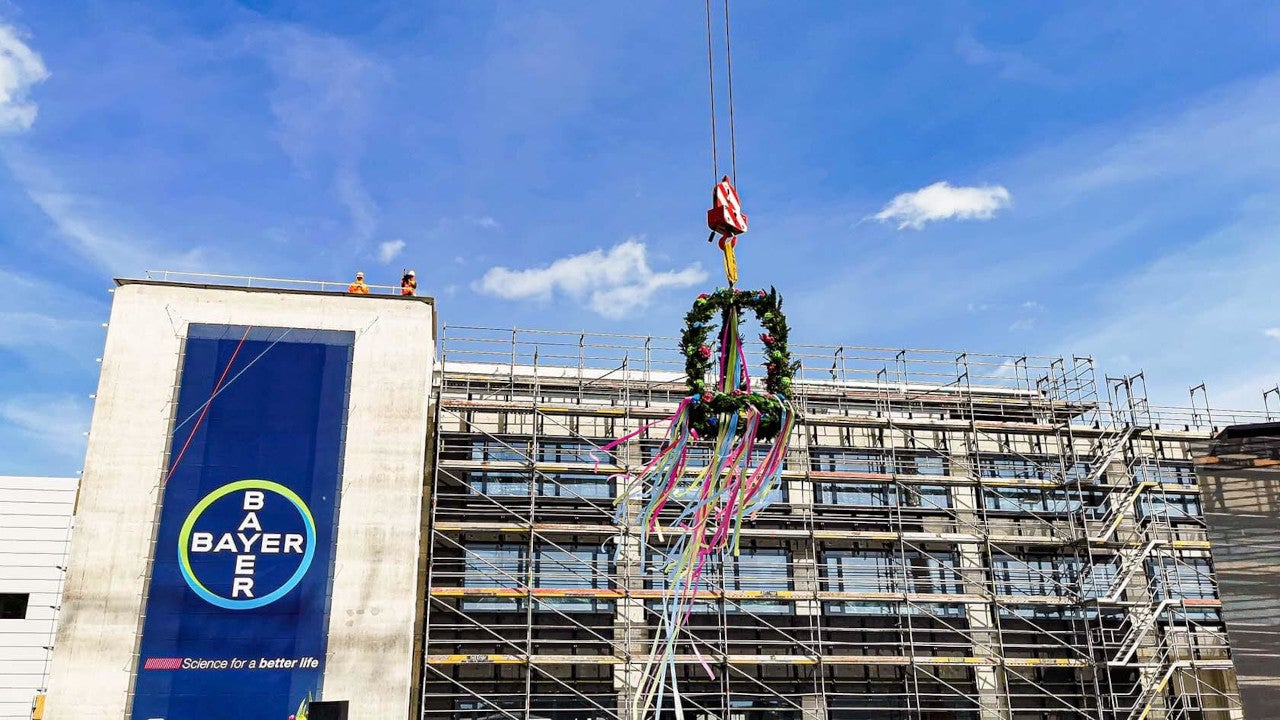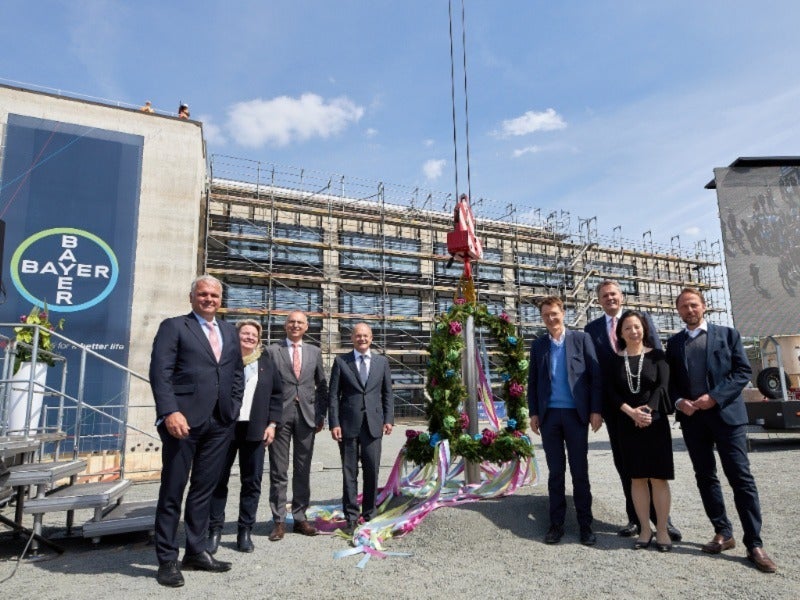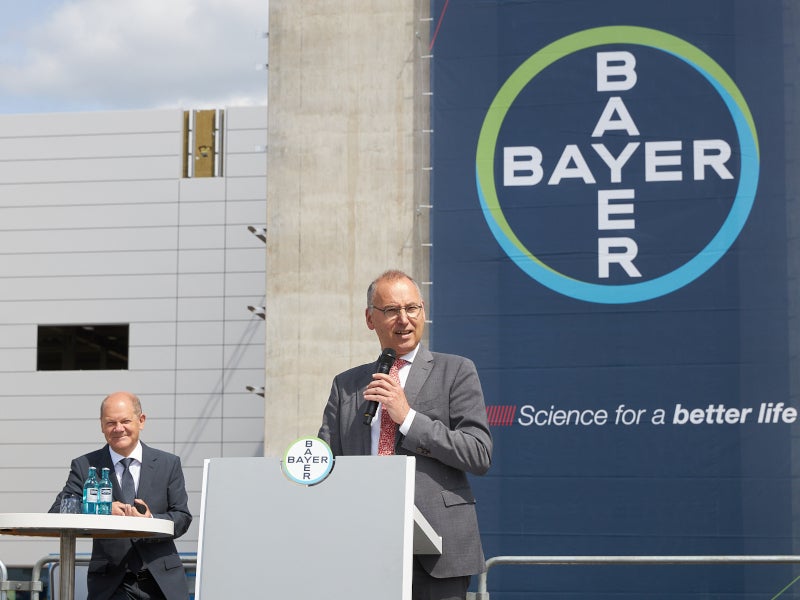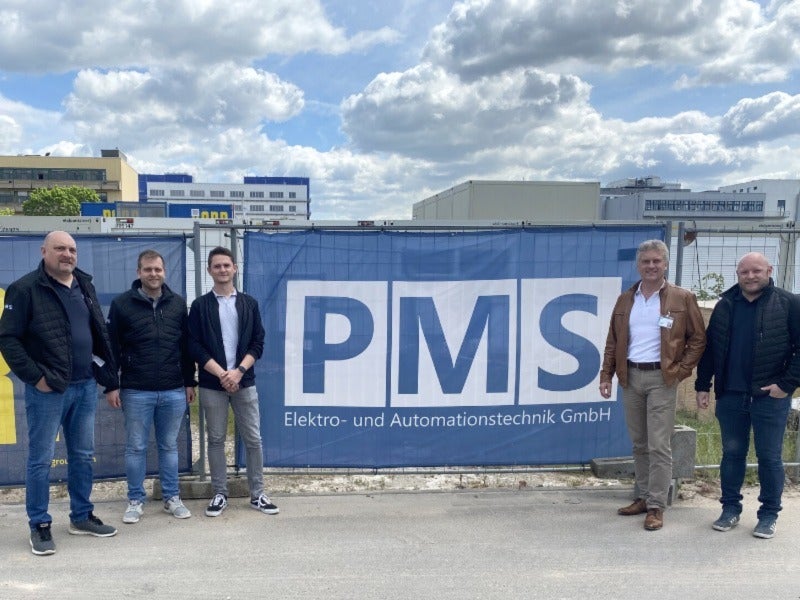German pharmaceutical company Bayer is developing the Solida-1 pharmaceutical production facility at its site in Leverkusen, Germany.
The company is investing €275m ($286.98m) in the facility. Construction of the facility began in 2020 and a topping-up ceremony was held in May 2022. The facility is expected to begin operations in 2024.
The Solida-1 facility will be the world’s most modern pharmaceutical plant and will focus on the production of drugs for the treatment of cancer and cardiovascular diseases. It will employ around 100 employees upon completion.
The plant is part of Bayer’s €1bn ($1.01bn) investment programme, which aims to strengthen its pharmaceutical production network and supply chain and innovation capabilities.
Location of Bayer’s pharmaceutical manufacturing site
The Solida-1 pharmaceutical production facility is being developed at Bayer’s Leverkusen site, which is one of the world’s largest production sites for pharmaceuticals. The site produces pharmaceutical drugs such as Xarelto™, Nexavar™ and Adalat™.
Details of Bayer’s Solida-1 pharmaceutical production facility
Solida-1 will be a single-storey facility, with a gross floor area of 15,000m2. The facility’s modular design will facilitate extension in the future, enabling Bayer to respond to future developments in the pharmaceutical sector.
The facility will benefit from digitalisation in a learning factory environment, in which data streams will be analysed with the aid of artificial intelligence and recommendations for action will be given based on the technology.
In addition, Bayer’s facility will feature high levels of automation and intelligent robot technology, with all process equipment being linked to a unified integrated system.
Sustainable features of the facility
The facility’s energy requirements will be supplied by a modern geothermal system, which will reduce carbon dioxide emissions by 70% compared with conventional systems.
Contractors involved in the project
German life sciences company Glatt was involved in the facility’s concept phase as a system integrator and helped update the planning of the project phases. The company is also responsible for the supply, installation, and commissioning of various products from its portfolio, as well as
PORR Industriebau, a construction company based in Germany, is responsible for the facility’s construction.
PMS Elektro- und Automationstechnik, a Germany-based electrical and automation engineering company, was subcontracted by PORR for the design, delivery and assembly of electrical supply systems for the facility, including switchgear engineering, wiring, installation and commissioning.
Independent construction planning company LINDSCHULTE Ingenieurgesellschaft provided planning expertise and building information modelling services for the project.
Marketing commentary on Bayer
Based in Germany, Bayer specialises in the fields of life sciences, healthcare and nutrition. It has operations in 83 countries and employs more than 100,000 people as of 2021.
The company recorded sales of €44.1bn ($50bn) in 2021 and spent roughly €5.3bn ($6bn) on research and development.
Bayer’s €1bn ($1.01bn) investment programme will include the implementation of new technologies, automation and digitalisation across its pharmaceutical manufacturing network. It aims to enable the company to focus on new growth areas and make new therapeutic options available to patients.
The company plans to invest in its sites at Berlin, Wuppertal and Leverkusen as part of the programme. It will convert its supply centre at the Leverkusen site into a centre of excellence for non-hormonal solids and its supply centre in Berlin into a centre of excellence for parenterals.






